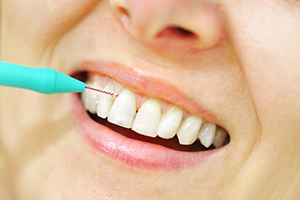 Chronic inflammatory gum disease and arthritis are more similar than many people realize, and researchers now think they may have found one of the main causes of both.
Chronic inflammatory gum disease and arthritis are more similar than many people realize, and researchers now think they may have found one of the main causes of both.
Scholars have understood for some time that people with arthritis are up to twice as likely to suffer from gum disease as their non-arthritic peers are.
They also know that people who have lost the most teeth because of gum disease tend to have the most severe cases of rheumatoid arthritis.
Scientists at Johns Hopkins University now think they may have found the link between these two conditions.
They first examined gum samples of people with and without gum disease and arthritis, discovering that 50% of people with both these conditions had an abundance of a bacterium called A. actinomycetemcomitans.
In comparison, only 11% of people without these two conditions had this bacterium in their gums.
This opened up the possibility that this A. actinomycetemcomitans bacterium caused both gum disease and rheumatoid arthritis.
Next, they compared samples from the joints of people with arthritis with gum samples from people with gum disease, and found that an identical immune system process occurred in both affected locations, called hypercitrullination.
Hypercitrullination happens when the normal process that regulates the operations of proteins in your body becomes overactive.
The consequence of this hyperactivity is the buildup of something called citrullinated proteins.
Your immune system dislikes this buildup of citrullinated proteins, because it is not a normal biological process.
It accordingly responds by producing antibodies to attack and remove these proteins.
These antibodies cause inflammation that then attacks your gums (in gum disease) and/or your joints (in arthritis.)
As we’ve reported on in the past, inflammation is the culprit in so many adverse health issues. Correcting this kind of inflammation might be as easy as better brushing, regular dental cleanings, and higher quality of food.

 Overcoming IBD
Overcoming IBD Multiple Sclerosis
Multiple Sclerosis Banishing Bronchitis
Banishing Bronchitis Gum Disease Gone
Gum Disease Gone Overcoming Onychomycosis
Overcoming Onychomycosis Neuropathy No More
Neuropathy No More The Prostate Protocol
The Prostate Protocol Brain Booster
Brain Booster
 Ironbound
Ironbound
 Solution for Shingles
Solution for Shingles
 The Bone Density Solution
The Bone Density Solution
 The Ultimate Healing Protocol
The Ultimate Healing Protocol
 The Parkinson's Protocol
The Parkinson's Protocol
 The Chronic Kidney Disease Solution
The Chronic Kidney Disease Solution
 Overthrowing Anxiety
Overthrowing Anxiety The Fatty Liver Solution
The Fatty Liver Solution The Hypothyroidism Solution
The Hypothyroidism Solution
 The End of Gout
The End of Gout The Blood Pressure Program
The Blood Pressure Program
 The Oxigized Cholesterol Strategy
The Oxigized Cholesterol Strategy
 Stop Snoring And Sleep Apnea Program
Stop Snoring And Sleep Apnea Program
 The Arthritis Strategy
The Arthritis Strategy The Vertigo & Dizziness Program
The Vertigo & Dizziness Program The 3-Step Diabetes Strategy
The 3-Step Diabetes Strategy Hemorrhoids Healing Protocol
Hemorrhoids Healing Protocol The Erectile Dysfunction Master
The Erectile Dysfunction Master Weight Loss Breeze
Weight Loss Breeze The IBS Program
The IBS Program The Insomnia Program
The Insomnia Program The Migraine and Headache Program
The Migraine and Headache Program The Neck Pain Solution
The Neck Pain Solution The Menopause Solution
The Menopause Solution The Ejaculation Master
The Ejaculation Master The TMJ Solution
The TMJ Solution The Acid Reflux Solution
The Acid Reflux Solution The Fibromyalgia Solution
The Fibromyalgia Solution The Psoriasis Strategy
The Psoriasis Strategy